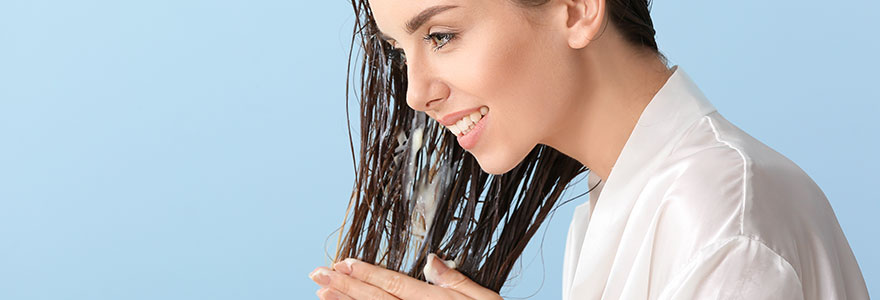To effectively tame your hair, whatever its nature, know that the conditioner can be very useful. In addition to avoiding knots, it helps to heal and cleanse your scalp. But how do you choose the right conditioner for you? Here are our tips.
The basis of the databases
Before choosing your hair detangler, first know its usefulness. This type of hair detangling product was not designed to wash hair. Indeed, it contains no soap or other foaming products. On the other hand, they are mainly composed of moisturizers such as keratin, vegetable oils, or glycerin. For example, don't be surprised to find detangling treatments based on coconut oil, avocado or shea butter. The main objective when applying hair detangler is to sufficiently nourish and hydrate the entire scalp. The hair detangler will therefore order them efficiently, take care of the lengths and draw the curls perfectly.
The criteria for choosing a good hair detangler
As mentioned above, a good hair conditioner should moisturize the hair. That's the most important thing! Therefore, the main selection criterion will be the hydration that the product will bring to your hair. Then, it should also allow the entire length to be smoothed correctly, while avoiding the formation of knots. Finally, it should not cost a fortune! Usually, hair detanglers are available in supermarkets or even from your usual hairdresser. You will therefore pay between 2 and 20€, depending on the range of your choice.
The different types of hair detangler
There are 2 types of conditioner:
- Rinse-off conditioners: this can be a conditioner, mask or cream. Simply apply it after shampooing, leave it on for a few minutes, and then rinse the hair thoroughly by untangling it with your fingers. This type of product should be used once or twice a week.
- Leave-in conditioners: This type of treatment is used dry, i.e. without rinsing, and without necessarily being preceded by a shampoo. Its mode of use is quite simple. As the Comb Guide reminds us, simply apply it before brushing or combing to untangle your hair in a few minutes.
The choice of your hair detangler
The rule for choosing your conditioner is simple: one hair type = one specific conditioner type. By choosing your product at random, you risk damaging your scalp. Here are our tips:
Detangle for afro, frizzy or curly hair
This is the hair type that requires the use of a conditioner the most. Indeed, they tend to entangle more frequently than straight hair because of their tendency to be drier. But don't worry, there is a solution! To disentangle and discipline this type of hair, it is necessary to prioritize products rich in moisturizers. To the delight of those interested, there are hair conditioners, specially manufactured for in-depth care, with or without rinsing, ensuring perfect hair detangling while keeping the specificity and authenticity of the curls. These may include creams, masks, lotions, balms, etc.
Detangling agent for coloured, fine and/or dry and damaged hair
These are the most fragile types of hair, and tend to be brittle, dry, or split. Moisturizing to the tips is therefore essential, in order to ensure the preservation of colour, quality and reflections, while at the same time strengthening them. To detangle coloured and/or dry and damaged hair, choose detangling products loaded with moisturizing agents, but also repairing and sublimating.
The other more "natural" alternatives
Are you an eco-responsible consumer or just a preference for more natural care? Be aware that there are other alternatives that allow you to apply detangles without harmful components (parabens or silicone) to your beautiful hair.
The organic
The trend being towards organic, you should also know that there are many organic treatments to untangle hair. In addition to eliminating knots, they allow you to avoid attacking them with chemical agents. They are available for sale on specialized e-commerce sites or in organic stores near you.
The homemade one
Do you know the principle of DIY (Do It Yourself)? Well, know that you can also make your own home-made hair conditioner. In addition to being 100% natural, you will be able to use ingredients from everyday life (eggs, honey, lemon juice, avocado, castor oil, etc.) for your preparation.

